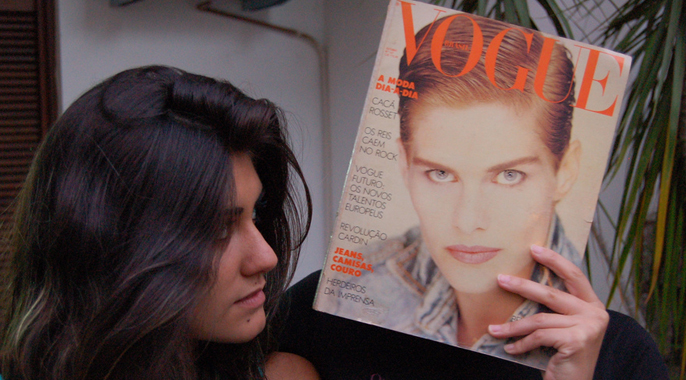Persuasion, temptation and attraction ooze from the fashion magazines of today. Glamour, Vogue and Grazia are all guilty of being symbols of splendour and expense. But how do they manage to brainwash us with an almost gluttonous desire to buy another version of that LBD or the coveted Mulberry handbag? You don’t need the item; however you had an uncontrollable urge to have it! These situations tend to be triggered by our conscious mind receiving messages implanted in our subconscious by the advertisers.
Do you recognise descriptions such as “the hot-list”, “exclusive” and “as seen on…”? These words greatly influence our decision to buy a product, regardless of whether we need it. The advertisers seek to sell to a group of readers whilst personally persuading each individual by using second person pronouns, “you’ll look really good” and “because you’re worth it”. The simple ‘you’ makes us feel much more important, like a vital component within the buying process; something many consumers tend to fall for!
The advertisers push the benefits of the product, suggesting it will do all the work, so you don’t have to. Accentuating and repeating the product’s advantages is obviously an essential part of advertising. However, advertisers also specialise in ‘twisting the truth’. This may take the form of an over-embellishment or lack of description rather than an outright lie, but the aim is still to mislead. The manipulation of truth works most successfully within health & cosmetic advertisements, for example, “Leaves your lashes looking 700% greater & more defined”. 700% compared to what? And how do you measure “greater” or “defined”?
Luxury and comfort also plays a huge part in advertising. We are familiar with compound words such as ‘top-quality’, ‘uber-chic’ and ‘limited-edition’ simply due to the extent they are used. Particularly when buying a product electronically, our decision is swayed by the description of the item. As we cannot physically handle it, words and images which stimulate our visual sense and imagination are more likely to create a greater desire for the product. This technique works exceptionally well when justifying buying high price designer products.
Do you need that £800 Armani Jacket? No probably not. But we do need to wear clothes!
Clothing is a necessity we must invest in, however, the amount of money we decide to spend is determined by the level of want for the item, which is essentially created by the branding. The desire for a high-end product transforms this necessity into a luxury!
I have to admit, I was a sucker for buying products previously considered to be “essentials”, which I now know are “unnecessary spends”. For those of you who are unaware, these are the items of clothing and accessories you purchased in all imaginable shades, sizes (boot-cut/oversized/boyfriend) and materials (of course, dependant on the consistently dull British weather) to prepare you for ALL eventualities. The reason for constantly falling for unnecessary products lies in the crafty use of words The advertisers employ to provoke an emotional reaction to a product. Fashionable jargon, such as, “à la mode” incorporated with terms like “must have” and “need” does just that by allowing the customer to feel knowledgeable of fashion lingo (even if it’s in a foreign language) whilst directly instructing them to buy the product. And to add further fuel to the fire, the way in which the advertisers present the word by using vibrant colours, large font and italics emphasizes the necessity to purchase the product.
Increasingly, individuals are failing to look beyond the branding, especially when celebrity images and references swamp the advert. Celebrity figures renowned for playing this devious game include Cheryl Cole and Scarlett Johansson. And with the technique capturing the audience’s attention, increasing their concentration and producing an unforgettable advert, there’s no wonder it’s been proven to ‘alter a woman’s brain activity’!
“The enhanced memory performance for items that were encoded in the context of a famous individual can neither be explained by increased attractiveness of the celebrity nor by a higher level of perceived expertise, but only by the persuasiveness of fame itself” said Mirre Stallen of Erasmus University.
If you are daunted by the prospect of purchasing a product, bear in mind that, ultimately, it’s your choice not The advertisers. Just think before you splash your cash!
Visit Ellie’s blog at: http://eleanorjaneblog.blogspot.com/









Be the first to respond